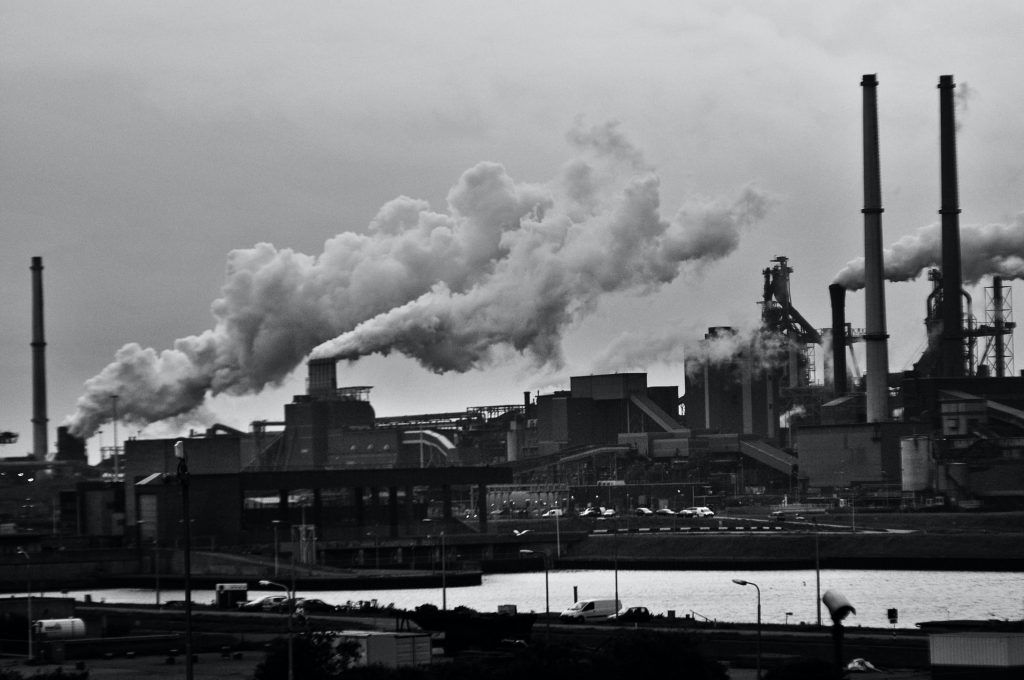World’s biggest carbon emitters told to reach net zero—by activist investors representing $47 trillion
By Adam Morton | September 18, 2020
 Photo caption: Rotterdam, The Netherlands. Image courtesy of Frans Van Heerden/Pexels
Photo caption: Rotterdam, The Netherlands. Image courtesy of Frans Van Heerden/Pexels
Editor’s note: This story was originally published by The Guardian. It appears here as part of the Climate Desk collaboration.
A group representing investors that collectively manage more than $47 trillion in assets has demanded that the world’s biggest corporate polluters back strategies to reach net-zero emissions—and promised to hold them to public account.
Climate Action 100+, an initiative supported by 518 institutional investor organizations across the globe, has written to 161 fossil fuel, mining, transportation, and other big-emitting companies to set 30 climate measures and targets against which they will be analyzed in a report to be released early next year. It is the latest step in a campaign by climate-concerned shareholders to force business leaders to explain how their targets and strategies will help reach the goals of the 2015 Paris Agreement.
The targeted companies are responsible for up to 80 percent of global industrial greenhouse gas emissions. They include mining giant BHP, which last week promised to reduce emissions from its operations by 30 percent over the next decade on a path to net zero by 2050 after sustained pressure from activist shareholder groups.
Others on the list include Exxon Mobil, PetroChina, BP, Royal Dutch Shell, Rio Tinto, BlueScope Steel, and major Australian energy companies AGL, Santos, Woodside, and Origin.
In a statement on Monday, the Climate Action steering committee lists “indicators” on which the businesses will be measured, including whether they have strategies to reach net zero emissions by 2050 or sooner and reduce the “Scope 3” emissions released by customers using the companies’ products (defined as emissions that are the result of activities from assets not owned or controlled by the reporting organization, but that the organization indirectly impacts in its value chain).
It says some companies have made significant progress, but stresses the need for stronger action on emissions to help limit global heating to 1.5 degrees Celsius above pre-industrial levels and prevent “the devastating impacts of otherwise avoidable climate crisis.”
Stephanie Pfeifer, chief executive of the UK-based Institutional Investors Group on Climate Change, said a step-change was urgently required, and the analysis would ensure it was clear which companies were treating climate change as a “business-critical issue.”
“Investors will be paying particular attention to those shown to be falling short,” she said.
Emma Herd, the head of Australia’s Investor Group on Climate Change, said investors expected Australian companies to be “actively preparing” a path to net-zero emissions through clear targets, strategies and executive oversight.
In April, more than 50 percent of Woodside shareholders and 43 percent of Origin shareholders called on the oil and gas companies to set science-based targets to cut both their own emissions and the “Scope 3” emissions released by their customers. The Woodside vote was the first time a climate resolution received more than 50 percent support in a vote by Australian fossil fuel company shareholders.
Andrew Gray, a director with AustralianSuper, said the measures in the letter would “assist companies in providing clarity around what is being asked and expected of them by investors.”
The letter says 59 of the 161 companies have formally supported the recommendations of the taskforce for climate-related disclosure, a global body that aims to highlight companies’ exposure to risks related to the climate crisis.
Australian climate scientists, insurers, and the finance sector on Monday released new guidelines for assessing the physical risk of the climate crisis to homes, building,s and infrastructure.
The voluntary guidelines, known as the Climate Measurement Standards Initiative, are designed to give banks and insurers consistent scientific advice on how to assess the risk of damage from events including bushfires, cyclones, floods, droughts, and heatwaves.
Companies involved include QBE, Suncorp, Insurance Australia Group, National Australia Bank, Westpac, Commonwealth Bank, HSBC Australia, and Munich Re. The scientific guidelines were developed by scientists from the CSIRO, the Bureau of Meteorology, and leading universities.
Together, we make the world safer.
The Bulletin elevates expert voices above the noise. But as an independent nonprofit organization, our operations depend on the support of readers like you. Help us continue to deliver quality journalism that holds leaders accountable. Your support of our work at any level is important. In return, we promise our coverage will be understandable, influential, vigilant, solution-oriented, and fair-minded. Together we can make a difference.
Keywords: carbon emission, climate change, climate crisis, global warming, shareholder advocacy
Topics: Analysis
















One minor detail. All of the big oil companies are national oil companies–Saudi Arabia, Iran, Iraq, etc. Exxon is not in the same league as Saudi Arabia. All of the big steel companies are national companies–China, Russia, etc. Western companies can’t compete against these national companies. That reality implies that investor strategies aimed as western companies just result in moving remaining industry out of the west. Sounds nice but total failure as a policy. .
Unless we drastically reduce the World’s population in one generation, we shall only achieve a small reduction in pollution of allsorts, because an INCREASING growing population, not forgetting the more prosperous individuals’ demands, will outstrip the rate of new energy production. Even by retaining the present rate of fossil fuel energy production, carbon-free energy production will not be able to keep up. Another factor has never been mentioned. All carbon-free energy is electrical. I asked an energy adviser recently if the price of electricity at above 15Kwh could ever compete with gas at about 5Kwh. He was more than doubtful.… Read more »